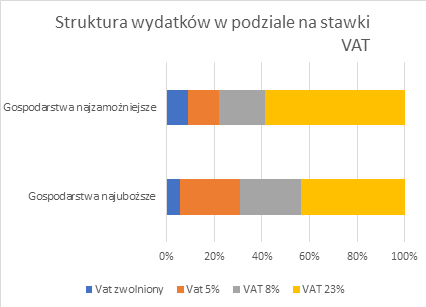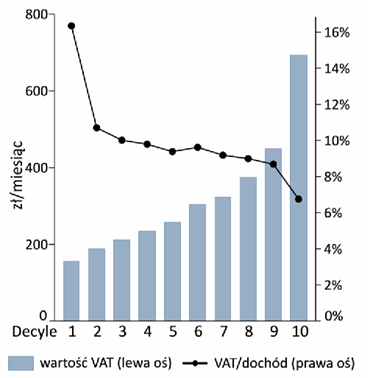Warsaw, 19th December 2018
Back to the Polish Social Insurance Institution
“A spectre is haunting Europe. A spectre of a bankrupt state-owned, pay-as-you-go pension system that has reigned for almost an entire century” is how José Piñera begins his book on social insurance.
Already a long time ago, in 2002, the Polish government admitted that de facto that there are no such things as “insurance” or “premiums” – there is tax on our remuneration. That is why they were able to introduce a work ban for pensioners: to increase the number of jobs for graduates. As I wrote back then, it’s as if PZU (the Polish national insurance provider) stated that they would only compensate the entrepreneur for destroyed property, provided that he would hire several unemployed people. However, heretics, who do not believe in the divine power of the government, stress that the amount of work on the market is not a constant. Instead of looking after a “just” division of work, the government should stop interfering with the creation of new jobs. As one could already then read in a study by the OECD Department of Economics: “introducing higher taxes on work apparently led to a reduction in both labour demand and supply, especially in the countries of Continental Europe, where the increase in taxes for social security increased average labour costs”.
If the so-called “social insurance” were real insurance, then the next governments could not have come up with the idea of unilaterally shifting the maturity date of benefits – as governments do with retirement age manipulation or changes in the algorithm based on which the benefits are calculated (what they actually do with retirement).
In March 2006, the then Prime Minister appointed me as the Chairman of the Supervisory Board of ZUS – the Polish Social Insurance Institution, and I began to raise amongst the insured awareness what their “insurance” really was. My mission ended thus quickly, after merely a dozen or so months. Now, I will continue it as a member of a representative organisation of employers: ZPP – the Union of Entrepreneurs and Employers.
It wasn’t easy, because despite being recommended, which until recently translated into an automatic entry into the body, I had to have a long conversation with the Council for companies whose shareholder is the State Treasury and state legal persons established on the basis of the Act of 16th December 2016 on the management of state property. I reckon I did a pretty decent job, as since the Prime Minister appointed me to the Board.
Allow me to inform you first who else is a member of the Supervisory Board of the Polish Social Insurance Institution, because I dare suspect that you do not know. Currently, the Board consists of 11 people and these are:
- members appointed at the request of the minister for social security in consultation with the minister for public finances:
- Justyna Adamczyk,
- Marcin Zieleniecki,
- members appointed at the request of representative organisations of employers:
- Iwona Sroka (Pracodawcy RP – Employers of Poland),
- Grzegorz Baczewski (Konfederacja Lewiatan – Polish Confederation Lewiatan),
- Robert Gwiazdowski (Związek Przedsiębiorców i Pracodawców – Union of Entrepreneurs and Employers),
- Jan Klimek (Związek Rzemiosła Polskiego – Polish Handicraft Association),
- Wojciech Nagel (Związek Pracodawców BCC – Business Centre Club),
- members appointed at the request of representative trade unions:
- Bogdan Grzybowski (OPZZ – All-Poland Alliance of Trade Unions),
- Bogdan Kubiak (NSZZ „Solidarność” – Independent and Self-Governing Trade Union “Solidarność”),
- Józef Ryl (Forum Związków Zawodowych – Trade Unions Forum),
- member appointed at the request of the Polish organisation of retirees and pensioners:
- Elżbieta Ostrowska (Polski Związek Emerytów, Rencistów i Inwalidów – Polish Association of Retirees, Pensioners and Invalids).
Marcin Zieleniecki is currently the Chairman of the Board, while Grzegorz Baczewski and Bogdan Kubiak are Vice-Chairmen.
What can the Board do? Nothing has changed since I was Chairman. This means that the Board can “talk” and as part of this talking, the Council may:
- provide its opinion on the request of the minister for social security to the Prime Minister for the appointment of the President of the Polish Social Insurance Institution (ZUS),
- periodically evaluate the work of the Management Board,
- provides its opinion on the intention of the ZUS President to appoint and dismiss the ZUS chief inspector,
- provides its opinion on the draft annual financial plan of the Social Insurance Fund and on the reports on implementation of this plan,
- provides its opinion on the project of the annual financial plan of the Demographic Reserve Fund and on the reports on implementation of this plan,
- provides opinions on the draft annual financial plan of the Bridge Pension Fund and on the reports on implementation of this plan,
- provides its opinion on rules and regulations of the competition which selects the co-financed by ZUS activities of the payers with regard to accident prevention,
- provides its opinion on the draft statute of ZUS,
- provides its opinion on draft legal acts in the field of social insurance and submits initiatives in this field addressed to the minister for social security,
- approves the ZUS annual financial plan and the reports on its implementation,
- approves the annual reports on activities of ZUS.
Of course, absolutely nothing arises from the potential “non-approval” of something by the Supervisory Board or from a “no-opinion” on a matter discussed, or even from a negative opinion.
The powers of those constituting the Board include:
- appointment and dismissal of members of the ZUS Management Board – but not independently, only at the request of the ZUS President appointed by the Prime Minister, regardless of the opinion of the Council,
- determining the remuneration for members of the ZUS Management Board, excluding the ZUS President – his remuneration is determined by the supervisory body – currently the Minister of Labour,
- adopting the regulations of operations of the ZUS Management Board.
So please do not hold any grudges against me concerning all other matters.
Aha! For performing this function – and holding this state “sinecure” – I am entitled as a member of the ZUS Supervisory Board to remuneration in the amount specified in the Prime Minister’s regulation of 28th December 1998 on the procedure for submitting candidates for members of the Supervisory Board of the Polish Social Insurance Institution, the regulations of the Supervisory Board and the rules for remunerating its members. It amounts to 150% of the allowance specified in the regulations on allowances and other payments for business trips. I swear I’ve no idea how much that is. Probably a thousand zloty. When the money’s transferred, I will let you know the exact amount.
Robert Gwiazdowski
Fot. Petroniusz/fotopolska.eu

 ZPP Newsletter
ZPP Newsletter















Recent Comments